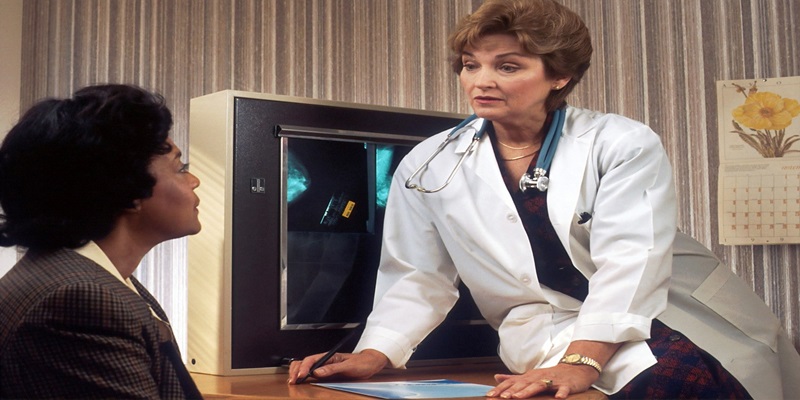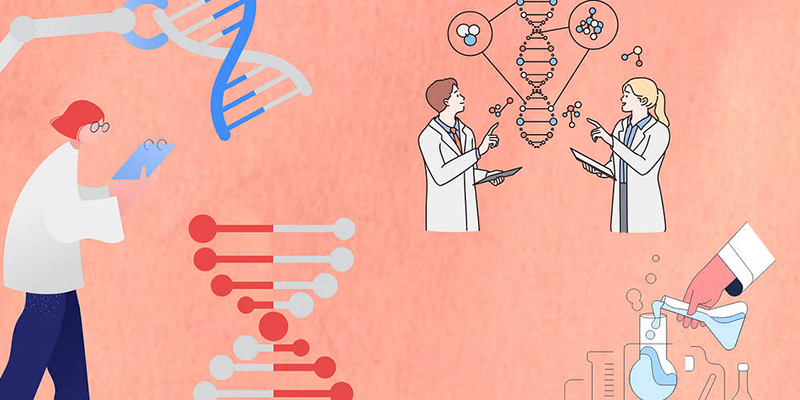Advertisement
Aug 27, 2024 By Hira

Aging is an inevitable part of life, but the choices we make today can influence how we age. Preventive medicine plays a vital role in shaping the aging process, offering tools and strategies to mitigate health risks before they become serious problems. By prioritizing preventive care, individuals can enjoy a longer, healthier life, free from the chronic conditions often accompanying aging.
In this blog post, we will discuss what preventive medicine means for healthy aging, the benefits of preventive care for aging, and some of the healthiest aging prevention strategies. So, let's get started.

Preventive Medicine
Preventive medicine focuses on preventing diseases rather than treating them after they occur. As they say, 'prevention is always better than cure.' This is why preventive medicine includes actions like regular check-ups, vaccinations, and lifestyle changes that help keep people healthy. Preventive care is essential as we age. This approach significantly influences how we age, making it a key strategy in maintaining health and well-being in older adults.
Benefits Of Preventive Care In Aging
Here, we discuss a few of the numerous benefits of preventive care in aging.
Early Detection Of Health Issues
One of the main benefits of preventive medicine is the early detection of health problems. Regular screenings, such as blood pressure checks, cholesterol tests, and cancer screenings, can identify potential issues before they become serious. For example, catching high blood pressure early can prevent heart disease or stroke. Early detection means treatment can begin sooner, often making it more effective and less invasive. This approach helps older adults manage their health better, leading to a higher quality of life.
Reduction Of Chronic Diseases
Preventive care also plays a critical role in reducing chronic diseases, which are common as we age. Conditions like heart disease, diabetes, and osteoporosis can be managed or even prevented with the right strategies. Vaccinations, such as the flu shot, protect against these conditions. By focusing on prevention, individuals can reduce their chances of developing these conditions, leading to healthier aging.
Prevention Strategies For Healthy Aging
1. Lifestyle Changes
A healthy lifestyle is the foundation of preventive medicine, especially in aging. Adopting healthy habits like those discussed below can significantly impact how we age.
Diet
Eating a balanced diet provides essential nutrients that support body functions.
Exercise
Regular physical activity keeps muscles strong, improves balance, and enhances cardiovascular health. Exercise also benefits mental health by reducing stress and improving mood.
Mental Health
Keeping the mind active and managing stress is also crucial. Activities like reading, puzzles, or socializing can help keep the brain sharp. Additionally, mindfulness practices or therapy can help manage stress and improve mental health.
2. Regular Medical Interventions
Regular visits to the doctor are opportunities to monitor health, update vaccinations, and receive advice on maintaining a healthy lifestyle.
Screenings
Regular screenings for high blood pressure, cholesterol, diabetes, and cancer are essential. These tests help catch problems early, making them easier to treat.
Preventive Medications
Some individuals may need medications to prevent conditions from worsening. For example, low-dose aspirin can reduce the risk of heart attacks in some people, and calcium supplements can help prevent osteoporosis.
Personalized Healthcare
Healthcare should be personalized to individual needs. What works for one person might not work for another, so it is essential to follow the advice of healthcare professionals who understand your health profile.
Challenges And Barriers To Preventive Medicine
Many challenges are associated with the concept of preventive medicine. Some of these are discussed below:
Economic Barriers
For many, the cost of healthcare services, even preventive ones, can be a burden. Without insurance or sufficient income, some people may skip regular check-ups or screenings, missing opportunities for early intervention.
Social Barriers
Location, transportation, and cultural beliefs can also affect access to preventive care. People living in rural areas may not have easy access to healthcare facilities, and some may face language barriers or cultural stigmas that prevent them from seeking care.
Public Awareness
There is a need for more public health campaigns to educate people about the benefits of preventive care.
Patient Education
Healthcare providers must inform patients about the preventive measures that are available and how these can contribute to healthier aging.

Long-Term Impact Of Preventive Medicine On Aging
Improved Quality Of Life
By preventing or managing chronic diseases, individuals can remain active, independent, and engaged in their communities for longer. This approach extends life and enhances the enjoyment and fulfilment of those extra years.
With fewer health problems, older adults can stay physically active, continue to engage in hobbies and maintain social connections, all of which contribute to a higher quality of life. Additionally, preventive strategies also support mental health, reducing the risk of depression and cognitive decline. Staying mentally active and socially engaged can lead to a more fulfilling life in older age.
Economic Benefits
Preventive medicine is not only beneficial for individuals but also has significant economic advantages. By preventing serious health issues, individuals can avoid costly treatments and hospitalizations. This saves money and reduces the stress associated with managing a serious illness.
Reducing the incidence of chronic diseases reduces the demand for expensive treatments, leading to lower healthcare costs overall. Another important point is that a healthier aging population contributes to society by reducing the burden on caregivers and allowing older adults to continue contributing to the economy and their communities.
Conclusion
In summary, preventive medicine is essential for healthy aging. It offers a proactive approach that enhances longevity and quality of life. By adopting preventive strategies, individuals can enjoy a more active and fulfilling life while contributing to broader societal benefits.
By adopting these healthy aging prevention strategies and focusing on prevention rather than cure, you and your loved ones can live a long, happy, and healthy life!
-

What Tech Tools Can Help Improve Your Sleep Quality?
Sep 09, 2024
-

How Digital Health Tools Are Changing The Healthcare Landscape
Aug 27, 2024
-

Medical Robotics: Transforming Surgeries And Rehabilitation
Sep 09, 2024
-

Contrast Therapy: How Alternating Hot And Cold Is Shaping Recovery
Sep 09, 2024
-

How Can Everyday Gear Perform Medical Tests At Home?
Sep 09, 2024
-

Why Genetic Testing Can Save Your Life
Jan 01, 2000
-

How Do Structural Barriers Impact Community Health?
Aug 27, 2024
-

Current Legislative And Regulatory Changes In Healthcare
Aug 27, 2024
-

What Are The Health Benefits Of Medicinal Mushrooms?
Sep 09, 2024
-

How Does Preventive Medicine Influence Healthy Aging?
Aug 27, 2024
-

What Are The Benefits Of Personalized Medicine For Patients?
Aug 27, 2024
-

How is AI Revolutionizing Healthcare Diagnostics in 2024?
Aug 28, 2024
-

The Importance Of Doctor Recommendations In Consumer Health Decisions
Aug 27, 2024
-

What Are the Benefits of Peripheral Heart Action Training?
Aug 28, 2024